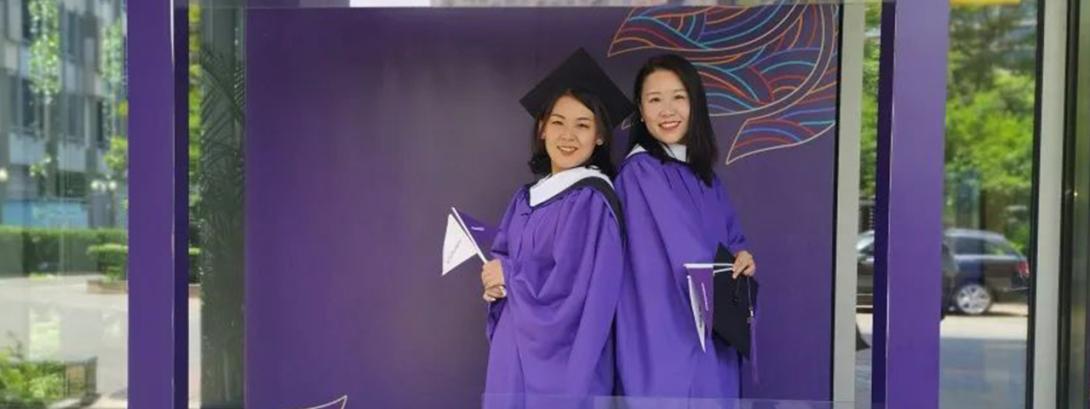Chen Chen and Yan Zheyuan are destined to be by each other’s side on their quest to become better English teachers. After sharing one office and teaching the same class as colleagues at the Shanghai Foreign Language School (SFLS) for ten years, the collaborative duo made a pact in 2019. Together, they would apply to NYU Shanghai - NYU Steinhardt’s joint Master’s in Teaching English to Speakers of Other Language (TESOL). Admitted shortly thereafter and now having graduated after two years, the tandem marvel at the self-improvement they’ve gained in the program and their bond, as tight as ever. 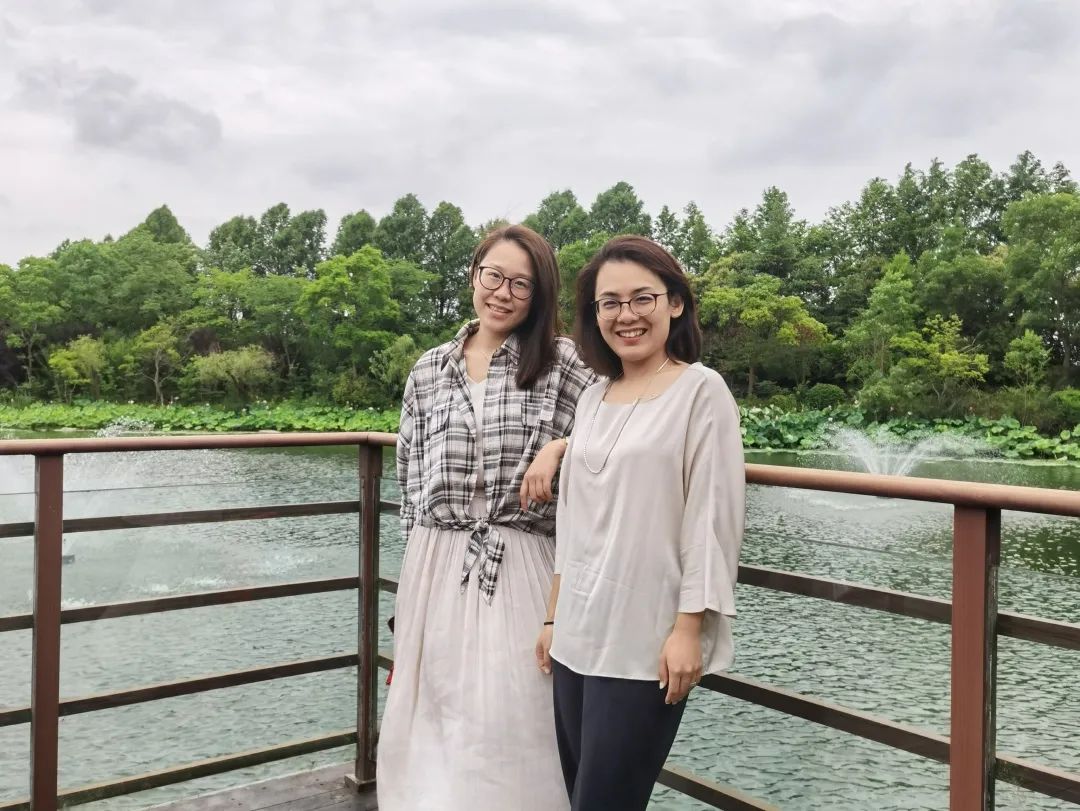
“Each professor from TESOL has their very unique teaching approaches, some are more humanistic, others might be more scientific,” says Chen. “Rather than sell their theories to us, they help us to formulate our own teaching methods based on specific situations, and make sure the innovative ideas are not obtained by luck, but drawn from a close observation and analysis of targeted learning groups.”
Yan echoes this point, adding that going through the same training increased their chemistry when collaborating in their own classrooms. “Now when I add some elements in the class activity, my teaching partner would immediately get what I have in mind, which lecture it comes from, what teaching outcome I expect.” 
Chen and Yan with professor and classmates in class
When they were growing up, Chen and Yan never imagined English, a language they practiced merely for fun as youngsters, would become today such a core part of China’s education system. As the child of a linguistics enthusiast, Chen picked up English through listening to her mom’s cassette tapes of Voice of America at home. When she was five, a chance encounter on a railway trip deepened her affection toward the language. On that day, the train she was riding in came to a stop next to another train. Seeing a native English speaker sitting in the window opposite her, she greeted him in English without hesitation. Amazed by her fluent English and confidence, the passenger took a balloon out of his pocket, blew it up, and passed it to her through the gap between the tracks.
“This memory defines what English means to me in a metaphorical way. It is the window to the outside world,” says Chen. “Since then, I can always derive a positive feeling from speaking English, and I wish to pass along that feeling to my students.”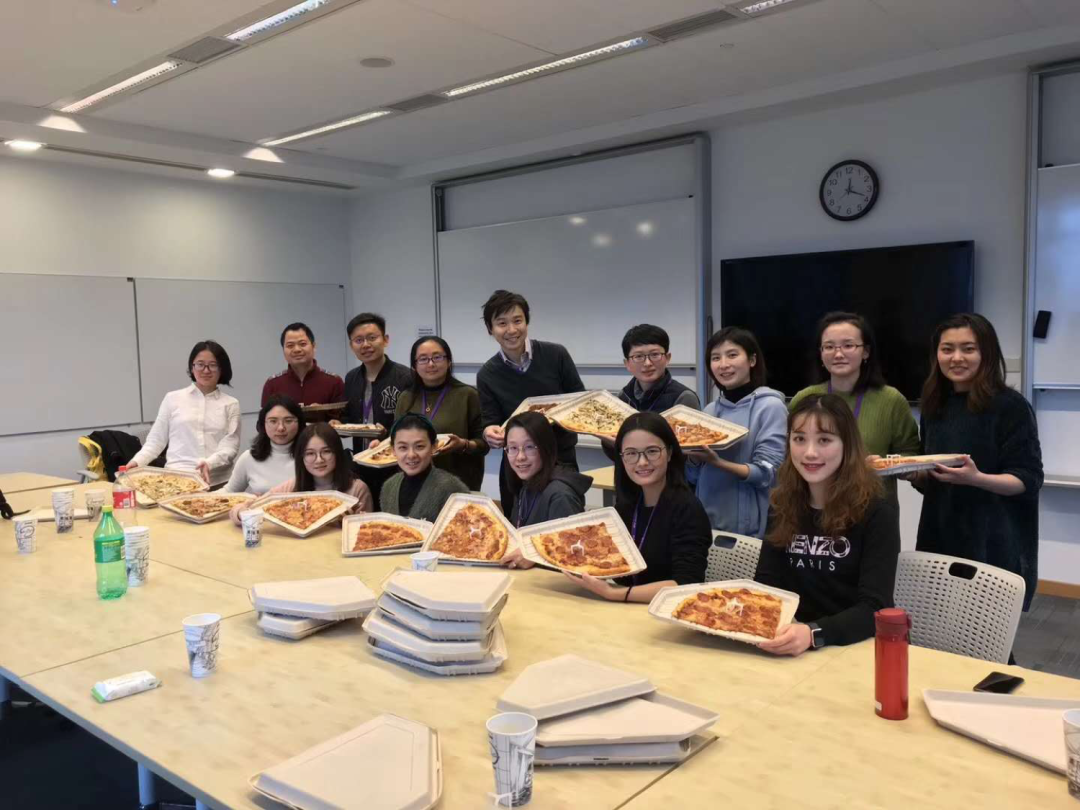
Chen and Yan enjoying pizza with professor and classmates during the final week
Like Chen, Yan never found learning English difficult. Since adolescence, she has enthusiastically watched American TV series and gradually developed a mastery of the language. “Fun is the most important thing for me,” says Yan. “I hope my class can always be filled with laughs.”
After a decade as teachers at SFLS, Chen and Yan thirsted for new ideas to use in their classrooms. Also, with neither having formally studied teacher education as college students, they longed for a systematic grounding in pedagogical theory and second-language teaching methods. The TESOL program got them recharged right on time.
“All professors care a lot about whether we can put theory into practice, so they include a wide variety of learning activities in class,” says Yan. “Many of these activities can be directly transplanted into our own class.”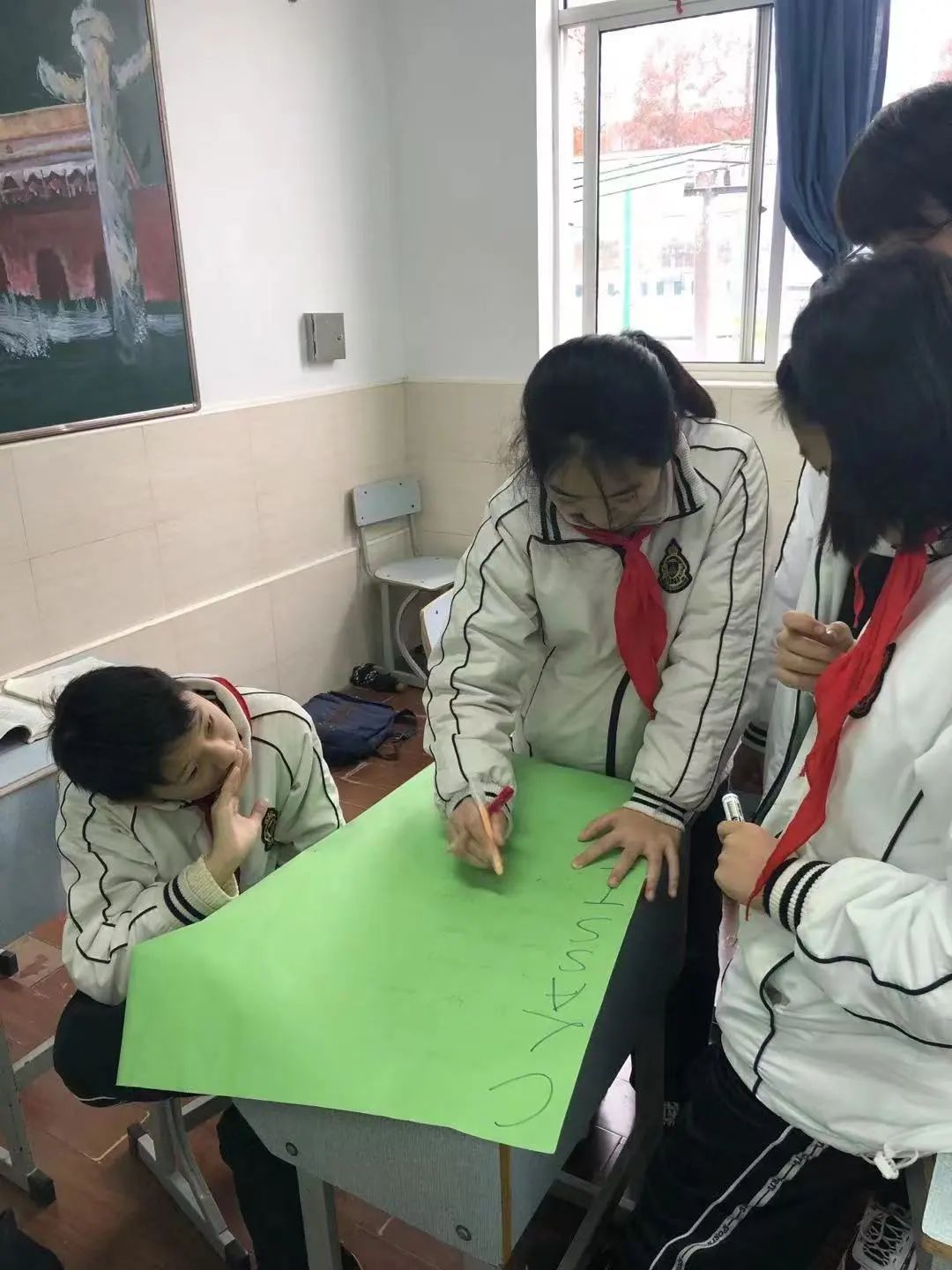
Chen and Yan's students doing a group task
For example, during the first couple months of the COVID-19 pandemic, when schools across the country all switched to online teaching, Yan and Chen were prepared. They quickly incorporated Kahoot!, a game-based learning platform introduced by Professor Kentei Takaya in their Linguistic Analysis class, to keep their students at SFLS engaged with remote learning.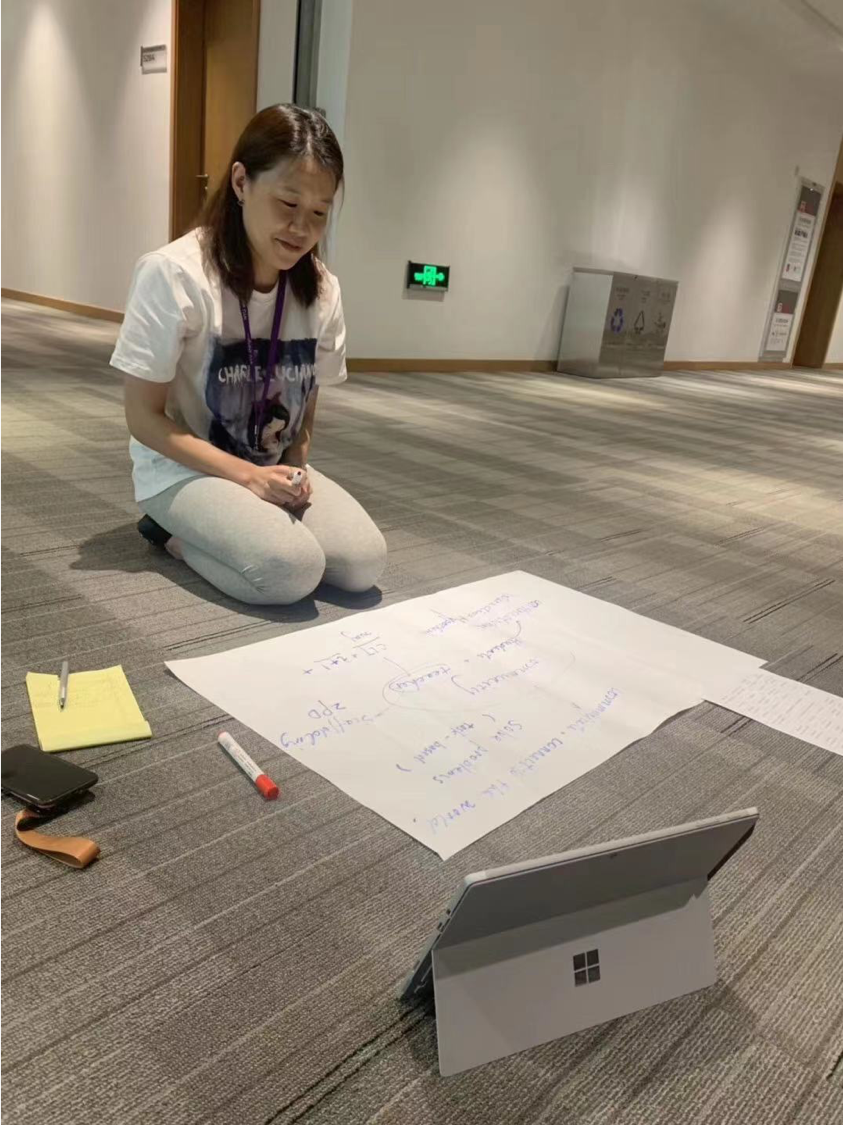
Chen doing group task with classmates in TESOL class
Chen and Yan also used their own creativity to craft activities for their students. Responding to a desire among her creative writing students for more engrossing subjects to write about, Chen held a photo poem activity inviting them to describe a series of photographs through poetry. The idea came from Humans of New York, a photograph book introduced by NYU Steinhardt Professor Frank Tang in which each portrait is accompanied by a life story of the character. “Humans of New York made me realize how much information an image can contain,” says Chen. “As images helped to open imaginations, students ended up writing very sentimental poems or humorous ones.”
With Professor Robin Harvey’s guidance, Yan also designed a workshop based on her understanding of Project Based Learning (PBL), a teaching method in which students learn by actively engaging in the real world and through personally meaningful projects. In that workshop, Yan had her students work collectively on an English handbook for freshmen. As students were allowed to choose either to focus on the content or the design based on their own interests, everyone took greater ownership of the project. “No matter how his or her English level is, each student can be engaged,” says Yan. “They enter the activity with their own rhythm.”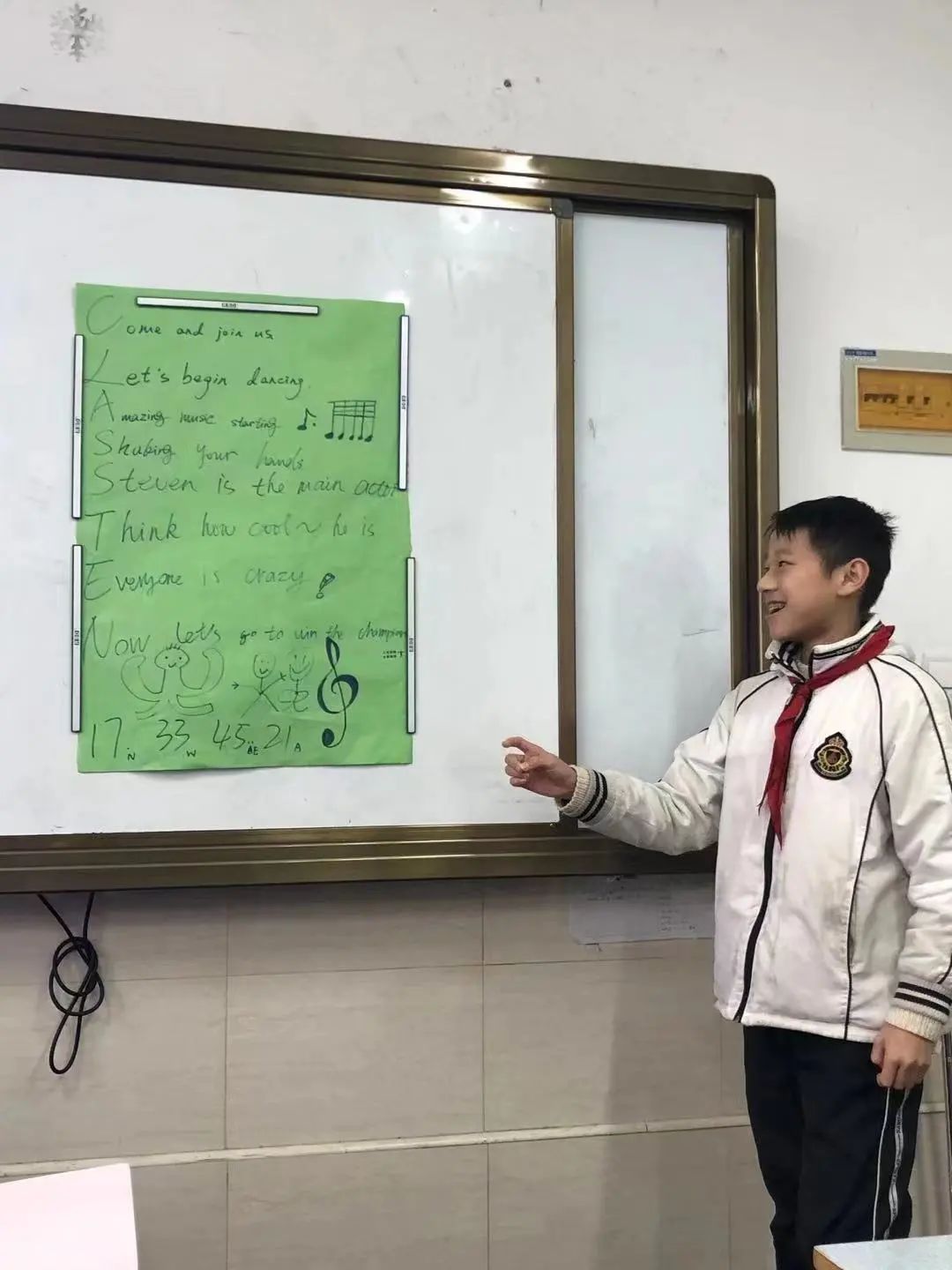
Chen and Yan's student making a presentation in class
Aligned with the TESOL’s program mission, Chen and Yan hope their students can build a trusting relationship with English, so it can serve as a bridge to other subjects. Now they take pride in ensuring their own classroom is inclusive of all students and their needs.
“It is difficult to change the learning experience for the students on your own,” says Chen. “But when you work with someone sharing similar goals with you, it is possible to push things forward.”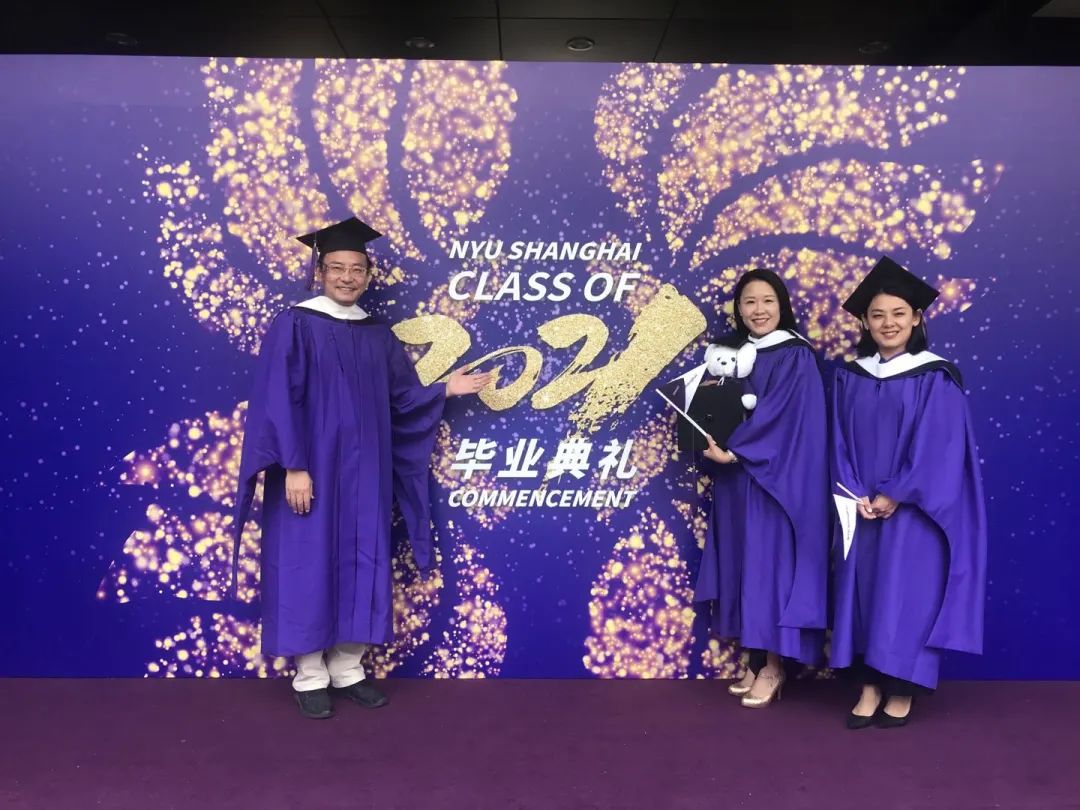
Chen and Yan with their colleague Shi Weihua MA TESOL '20 at 2021 Master's Convocation


